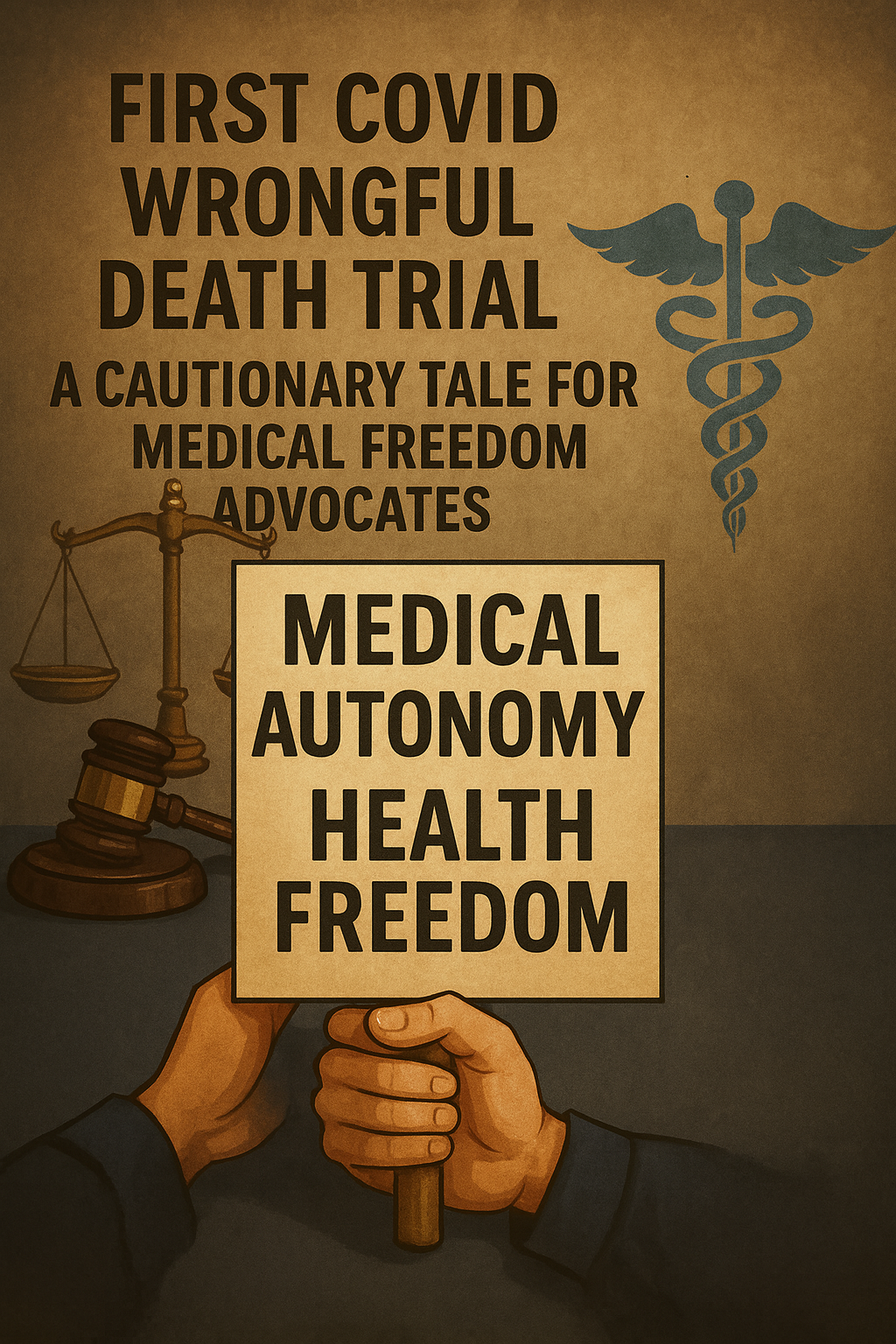
Grace Schara, a 19-year-old teen with Down’s syndrome, was taken by her father to St. Elizabeth’s Hospital in Appleton, Wisconsin on October 6, 2021, because of a positive home Covid 19 test and cold-like symptoms, along with a below normal oxygen saturation reading. Grace was seen in the ER and then admitted to the hospital on October 7th for administration of supplemental oxygen and steroids, and for observation. Grace remained in the hospital for the next 6 days, with her condition ultimately deteriorating, resulting in her death on October 13th.
Grace’s family filed a lawsuit in the Wisconsin courts against St. Elizabeth’s hospital and several doctors and nurses involved in her care, alleging her wrongful death. The trial was marked by conflicting evidence concerning Grace’s diagnosis, the proper standard of medical care, and whether Grace had a valid Do Not Resuscitate [DNR] order in her chart. After a three-week jury trial in June, the jury returned a verdict in favor of the defendants on June 20, 2025.
Grace’s family and their physician expert witness maintain that the administration of the powerful sedative medications, precedex and lorazepam, along with a dose of morphine on the final day, resulted in her death by overdose. They also maintain that they were never informed of the risks and benefits of these medications, in spite of requesting information on all treatments, and did not consent to their administration. When the overdose caused Grace’s cardiac arrest, her physician was not present. The family maintains that the hospital nurses refused their cries to save Grace, citing the DNR order in her chart.
The family also maintains they did not consent to, and were not aware of, the DNR being entered in Grace’s chart. The hospital physician testified that the family agreed to a DNR order in a lengthy telephone conversation, which is why he entered it in Grace’s electronic chart. Defense witnesses testified that there was no requirement for an actual written document, signed by the patient or an advocate, for the DNR to be effective. Hospital witnesses also testified that a DNR order can only be revoked by a physician’s order, and that it would have been improper for nurses to attempt resuscitation while a valid DNR order is in place.
Communication with family members during Grace’s hospital stay was conducted for a significant period over video or telephone because Grace’s father Scott, her primary advocate, had been forced by hospital staff to leave after several days, and no family member was present until her sister arrived approximately 30 hours later. There was conflicting evidence as to why Scott was removed from Grace’s hospital room, but it isn’t disputed that the hospital did not initially allow Grace’s sister Jessica to replace Scott even though Grace was a Down’s syndrome patient who had never spent a day away from her family before the hospitalization.
The defense presented evidence that Grace died from a severe Covid 19 infection and that she received all necessary and proper care. Covid had severely damaged her lungs causing Acute Respiratory Distress Syndrome [ARDS], marked by low oxygen saturation and rapid breathing. Lorazepam and precedex were properly administered to slow Grace’s dangerously rapid breathing and to help improve her oxygen saturation. Lorazepam was also needed to calm Grace when they inserted a nasogastric feeding tube. The best treatment for Grace’s progressive ARDS would have been intubation, to which the family had not consented, so all other available measures were taken to improve her condition, to no avail.
The hospital presented evidence that by signing a general consent form upon admission, a patient agrees to most all aspects of treatment, including the administration of powerful sedative medications, and that there is no requirement to obtain separate informed consent to administer them.
The testimony presented by Grace Schara’s family echoes the reports of thousands, if not tens of thousands, of families during the height of the Covid pandemic. Families reported that their loved ones were locked away in hospitals and that they were denied visitation, leaving their loved ones utterly alone and vulnerable, often dying alone.
Some families also reported that their loved ones were needlessly strapped to their beds and even deprived of adequate food and water while hospitalized.
Hospital staff and physicians often ignored the family's instructions regarding the care of their loved one. In some cases, families had to obtain a court order to force hospitals to allow administration of medication that had been prescribed by the patient’s doctor for the treatment of Covid.
Perhaps most concerning of all, the Scharas testified that they never agreed to a DNR order for Grace, yet the hospital physician entered a DNR order in her electronic chart, based on a telephone conversation. Even more egregious, the family testified that none of the nurses on duty at the time would lift a finger to attempt to save Grace’s life when she went into cardiac arrest, even though the family was begging for help, because of the DNR order.
In Grace Schara’s wrongful death trial, we can assume the jury was persuaded by the witnesses and evidence produced by the hospital, doctors and nurses caring for Grace. However, the conflicting evidence presented during the trial, which echoes thousands of similar reports by other families, presents a highly disturbing picture of hospital care, procedures, and communication. Keeping patients isolated from loved ones, failing to inform the patient or advocate about the use of powerful and dangerous medications, physical restraints, lack of food and water, and designating patients as Do Not Resuscitate against their will, should not occur in a free, just, and moral society which recognizes bodily autonomy as a fundamental, inalienable right.














